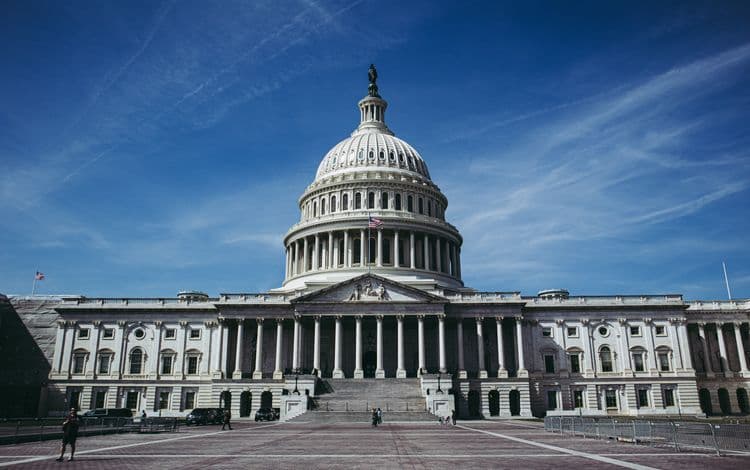As with many things that have happened in the transition from a Trump to a Biden presidency, there are dramatic changes ahead—and with the latest announcement, some investors across the country are going to feel the effects of such changes. Real estate sales and the resulting taxes paid are also going to look different if Biden's proposal passes. Currently, as we are in the midst of a very hot seller's market with inventory low and demand at record highs in some capacities, home prices in several regions of the country are skyrocketing. Many experts fear another bubble of sorts, though no one is predicting anything near the proportion of what we witnessed in 2008.
President Biden this past Wednesday announced an increase in the capital gains tax. For many homeowners, this won't affect what they stand to make and consequently have to pay from a home sale—or regarding capital gains on investments. And likewise, for numerous investors, this also won't create any issues given the limits associated with this tax hike. That said, if you are among the portion of the population that makes over one million, then this new capital gains tax hike could have a pretty major impact on you. In this article, we look at the details surrounding Biden's capital gains tax increase and how that could potentially affect some people in the country.
What is Capital Gains Tax?
First off, a brief explanation of what exactly capital gains tax is and who it impacts. When you sell an asset (and this could be a stock, bond, home, jewelry/) for more than you paid, the resulting profit in some circumstances would be subject to capital gains tax. In other words, just as the government gets their cut of your income, they are also going to get a cut of this profit which is viewed as income.
Capital gains work a bit differently depending on the asset class. For example, certain stipulations and criteria protect a percentage of home sale profits from being taxed. With stock and bonds, however, it doesn't quite work this way. Depending on how long you hold onto an asset though, you may benefit from long-term capital gains tax rates versus what you'd pay with short-term rates.
Biden's Proposal
Given what the president has proposed, the wealthiest people in the US could see a significant hike in the capital gains tax rate. This rate hike will affect stocks, bonds, cryptocurrencies, and yes, where applicable net gains from home sales. As it stands right now, those in the high-income tax rate currently see only a 20% capital gains tax on certain assets. With this new plan, that rate will increase to a whopping 39.6%--nearly double what they are paying now. This does not include the 3.8% levy on net investment income.
While it is estimated that only .3% of the country will feel the effects of this proposal, it still could be a hit that impacts the real estate market in particular, with sellers reconsidering certain transactions in light of the huge tax bill they could receive.
Capital Gains Exclusions
Speaking strictly about the real estate market, certain exclusions apply which help homeowners avoid paying an abundance of tax and thus maximize their home sale profits. For example, if a single taxpayer has lived in a home as their primary residence for at least two years within the five years before a sale, they can subtract up to 250k from what they made on the sale of the property. With a married couple, this amount increases to 500k. Anything above and beyond will be subject to capital gains tax.
With home sale prices rising in response to a hot seller's market, in higher-end areas of the country where houses sell for significant amounts, this could potentially bump sellers up into the one million-plus income category. In Los Angeles for instance, the median home sale price hovers right around 1.2 million. Therefore, if a person purchased a property when home sale prices were substantially lower and they consequently sell and "make a killing" so to speak, this new tax hike could most definitely affect them and what they stand to pay in taxes on all of their investments. When you factor in the state tax on top of that, in a state such as California, they could be looking at upwards of fifty percent as far as the capital gains rate goes.
How to Plan Accordingly
You may not be able to get away from the steep rates associated with Biden's capital gains proposal, but there is some strategic planning that you can do to help alleviate at least some of your tax burden.
One thing you can do as far as home sales go is to make sure you adhere to all exclusion rules so that you do at least reap the 250k or 500k benefit. Often what happens is that a homeowner may move out of a home and then opt to keep that property as a rental for quite some time. This will effectively negate your ability to benefit from the tax exclusion.
Another thing that as a property owner you can do is to look at any home improvements as increasing the original price of the property and thus adjusting its cost basis, which is the value used when factoring the capital gains tax owed.
The key here, be it when talking about home-as-asset or stock/bond investments, is to plan with the tax ramifications in mind. To this end, a financial planner could come in handy.
First Union Lending is here to help. We offer short-term loans, lines of credit, and SBA loans among other programs for businesses in need of additional working capital. Even if you don't have stellar credit, we can likely help you get the cash you need when you need it. Call today and let's get started!
